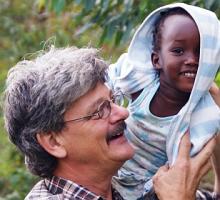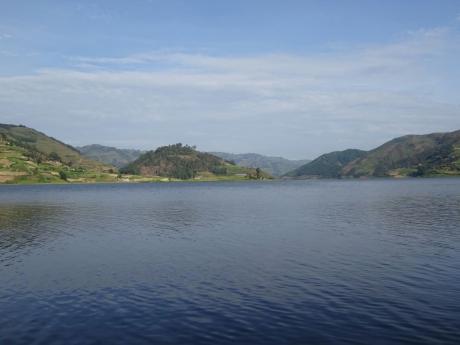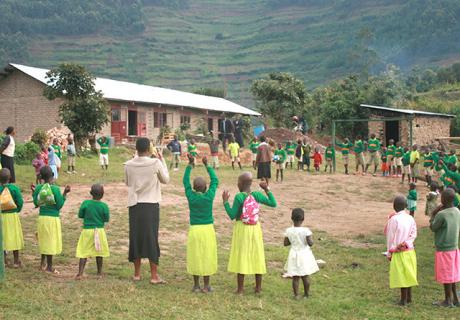Mission Statement
Therefore, he founded Amasiko, which means “hope”, and developed the concept of the organisation around the motto "learning for a greener future." This means that we believe that:
- Learning is integral to development
- This needs to be sustainable
- Development is a continuous process
- It should be youth oriented
- We need to do this together.
We practise this through eco-tourism, organic agriculture, teaching children in our school, and providing vocational training opportunities for local people. We are a social enterprise, we rely on donations and we use the profits from tourism to finance our projects.

Wilfried van der Veen
Wilfried has 20 years of experience as an aid worker in Africa. He worked on a contract basis and used his income to help others. Here he gained the experience and insights that helped form the basis of his future vision for Amasiko.
Here you can also read Wilfried personal history
Experiences and Insights
- Plenty of societies are undergoing large social change as a result of globalization. This leads to a breakdown of traditional values.
- By participating in the global economy there is a growing gap between rich and poor and a growing perception of want and poverty.
- 75% of Ugandans still live from subsistence farming and more than 35% still live below the poverty line of less than 1 USD per day. Uganda has a very large number of orphans (> 7% of the population).These are for a large part orphaned because of the AIDS epidemic.
- There are programs that focus on babies and young orphans, but there are very few opportunities for young people who have lost their parents.
- These young people often end up homeless, or they have to live with kin of their deceased parents because of the expectations of traditional custom. Their new caretakers often do not have the means to sufficiently take care of their own children. These orphans are often seen to be a burden that cannot be carried. As a result, they are often used for cheap labour, or are married off in order to get rid of them as soon as possible. In addition, step-parents have a tendency to take advantage of their adopted children, so orphans often feel disenfranchised and begin to see themselves as inferior.
- The result of this is that they flee from the family to seek their luck elsewhere. A life in the big city with hopes of a rich western life has the most appeal. The reality is different. Many end up in slums, working in small jobs in the informal sector, or end up in petty crime. There is also the risk of ending up in being lured into prostitution.
The Future
These observations served as inspiration for the initial idea of setting up a training centre for young people in ecological agriculture and horticulture. This idea was further developed when Wilfried, in 2005, came into contact with Ecolonie in France. He saw how, through experience, young people obtained skills in ecotourism while at the same time learning about ecological horticulture and animal husbandry. This experience strengthened his idea to combine this concept of a training centre with a living and working community that included promoting ecotourism.
Based on these experiences and insights Amasiko wants to be a community that:
- Pursues and encourages a sustainable way of living, and thereby provides a safe and stimulating environment for young people to train.
- Is an example for a form of sustainable society based on traditional African values, democratic principles, and importantly, respect and cooperation among all people, regardless of background, race, gender, religion or age.
- Is economically and ecologically sustainable by using renewable, local food and energy resources to become financially self-sufficient.
- Is socially sustainable by giving everyone equal rights and duties.
- Supports orphaned young people to grow up to become full citizens who learn to create their own livelihoods independently.
- Supports the peasant population in a region of Uganda in their development.


